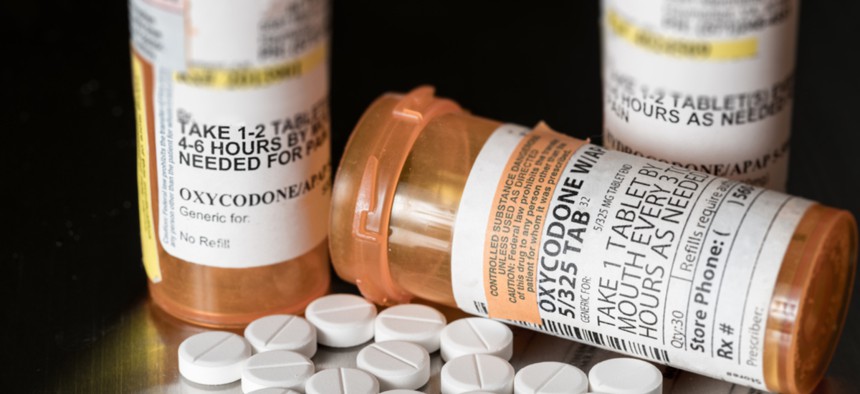House Passes Bill to Open Government Data About Opioid Abuse

Steve Heap/Shutterstock.com
The Health and Human Services Department would have to build a dashboard to share information about substance abuse, treatment and recovery.
The House on Tuesday passed legislation that would make government data on the opioid epidemic more widely available and accessible to groups fighting drug abuse around the country.
The Indexing Narcotics, Fentanyl and Opioids Act would require the Health and Human Services Department to create an online information dashboard that aggregates publicly available data on substance abuse from federal, state and local governments and organizations. The site would also detail federal initiatives to curb opioid abuse and provide information on addiction treatment and alternative pain management practices.
The dashboard would house data on general opioid abuse prevention, treatment and recovery, and include subsets of treatment and prevention information for different regions and demographic populations. If passed, the bill would give HHS six months to build the platform and require the agency to periodically update data and program information.
The legislation, introduced by Rep. Bob Latta, R-Ohio, was approved unanimously amid a wave of bills strengthening the federal response to the abuse epidemic that claims some 115 lives each day. The House passed 25 opioid-focused bills this week and another 30 are scheduled to hit the floor next week.
Overdoses of prescription painkillers, heroin and other opioids have become a familiar tragedy in communities across the country, but groups fighting that drug abuse often lack the resources to understand the problem more broadly, according to Latta.
“I continued to hear that it was difficult to locate data and grant funding information that could be useful for those on the ground,” Latta told Nextgov. “The INFO Act would help efforts by health care providers, advocates, state and local governments, and law enforcement by putting this information in one place. It would make a big difference in rural communities that don’t always have the resources or personnel to apply for Federal grants that are available.”
“I’m also hopeful that it could make a difference in the research and analysis being done that could help us target geographical areas and populations that may be more at risk,” he added.
Additionally, the INFO Act would create an Interagency Substance Use Disorder Coordinating Committee to manage and monitor all addiction-related efforts at HHS. The board would include the HHS secretary; attorney general; secretaries of Labor, Housing and Urban Development, Education and Veterans Affairs; and other high-ranking federal officials, as well as 17 non-federal members appointed by the HHS secretary.
HHS has already started embracing big data as a means to fight opioid abuse. In December, the agency hosted a code-a-thon where more than 300 civilian techies used federal data to build tools to track opioid prescribing rates, get unused drugs out of circulation and help hospitals better allocate resources to treat drug overdoses.
State and local healthcare organizations are already working with the winners of the code-a-thon to build out their products for real-world use, HHS Chief Data Officer Mona Siddiqui told Nextgov.






